Discover Lafayette

Shelley Delahoussaye – Lafayette Animal Shelter and Care Center
Shelley Delahoussaye, Supervisor of the Lafayette Animal Shelter & Care Center, joins Discover Lafayette to share her passion and love of animals and how the animal shelter works to save as any animals as possible while searching for loving and safe environments for them.
A graduate of UL – Lafayette, Shelley earned a bachelor’s degree in Animal Science. After working in private vet clinics, she was hired in 2017 by the Lafayette Animal Shelter as an Adoption, Foster, and Rescue Coordinator. One year later, she was promoted to Shelter Supervisor. She has always had a passion for animals.
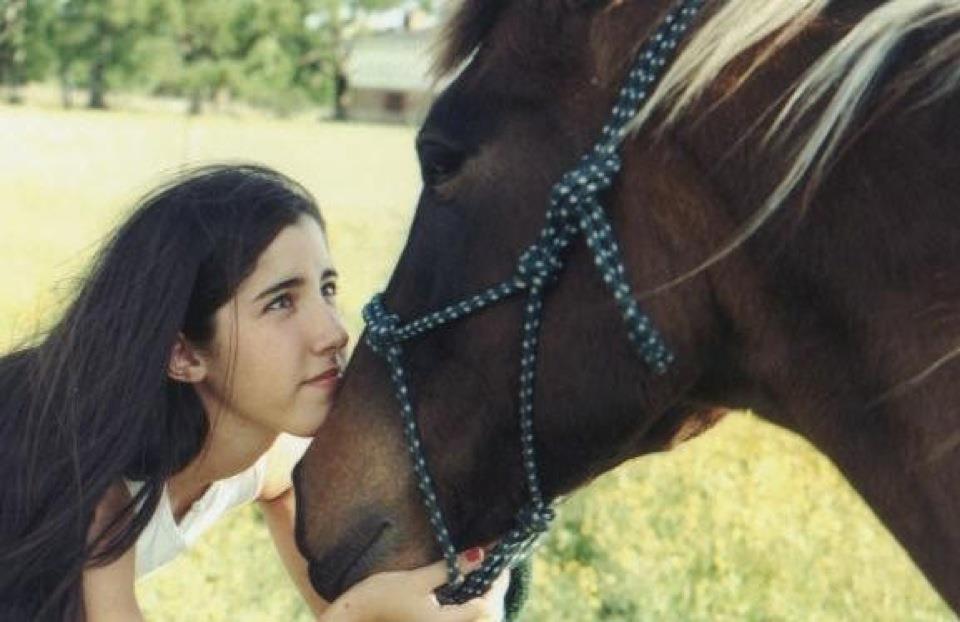
Prior to Shelley’s leadership, the save rate for dogs was 47% and cats a low 9%. In 2016 when former Mayor-President Joel Robideaux ran for office, he campaigned on the idea of NO-Kill 2020, an initiative to which he dedicated focus and support to make it happen. Through changes made under Shelley’s supervision, the shelter achieved a 90.3% save rate by 2020, and has maintained that rate ever since. Even with this success, there is still a continuing glut of stray animals in our community and the work of Lafayette Animal Shelter is critical.
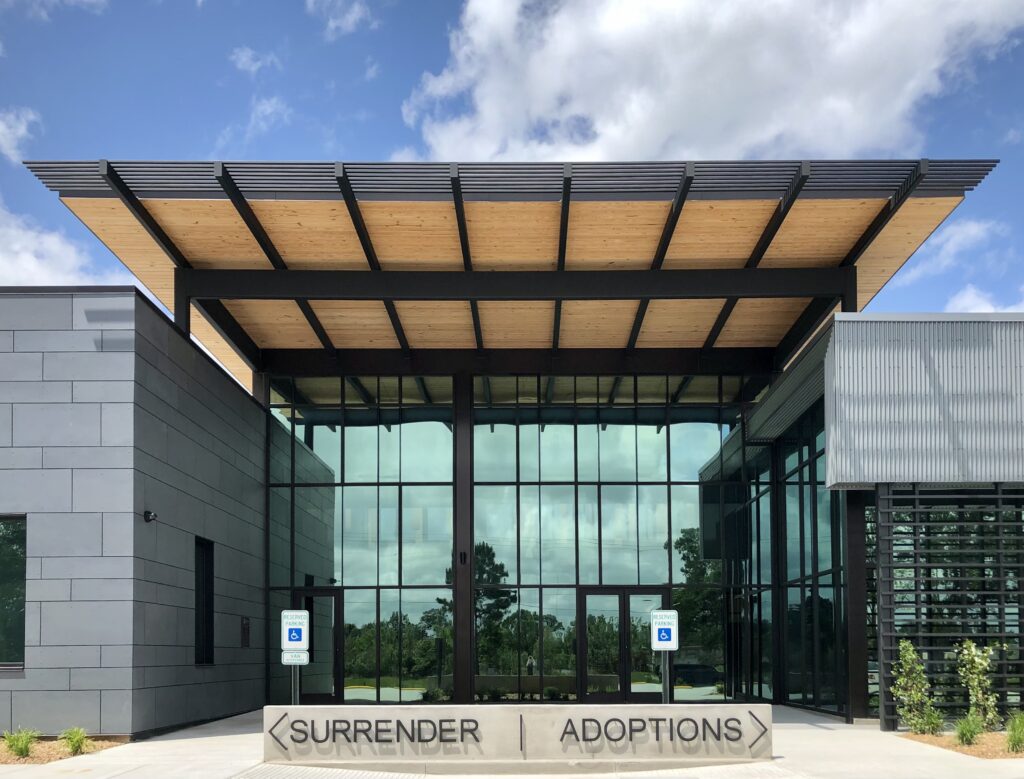
Pictured above is the beautiful Lafayette Animal Shelter and Care Facility. Designed by Architects Beasley Moliere, the front entrance is separated into two wings: the surrender side and the adoption side. While Shelley originally questioned this decision, she quickly realized how important it is to keep the interactions separate. “The Surrender side is sad, with frantic owners looking for their pets. The Adoption side is happy, with people looking for a pet to love and care for.”
Prior to COVID, other states around the country would take many of our stray animals as there was a shortage of pets. Nationally, there is a trend of more responsible pet ownership and laws enforcing spay/neuter, as well as restrictions on breeders as to how many animals can be bred and how often, thus reducing the overpopulation. But now post-COVID, the shelters around the U. S. are also full and can’t take our strays.

“It’s important to get to the root of the stray population, which is access to low-cost spay and neuter. Wild Cat SpayNation for dogs and cats is the only nonprofit low-cost spay/neuter provider that services all of Acadiana. They can only do so much. Many people want to do better by their pets but can’t afford it. Please donate to them!”
Lafayette Animal Shelter takes in approximately 5000 animals each year. And they get in not only dogs and cats, but potbellied pigs, goats, horses, cattle, bunnies and chickens. Shelley joked that recently her team nicknamed the facility “Old MacDonald’s Farm” because of the variety of barnyard animals they took in. Luckily that week they found homes for 10 chickens, 3 potbellied pigs, 3 goats, and a horse!
https://www.youtube.com/watch?v=34TI_obzQj8
Shelley Delahoussaye on how to prepare adequately for your pet’s safety as a storm or hurricane approaches.
Adopted animals are neutered, fully vaccinated and microchipped before you take them home. “It’s a great deal,” Shelley says, and “The animals receive about $600 worth of vet treatment before they go to their new home.” Adoption fees are $35 for dogs and $25 for cats. Seniors and military vets can adopt at no charge. Any pets who have been at the Animal Shelter over 30 days can be adopted for free and when the shelter gets full, adoption fees are waived. “We want them in good homes without financial barriers.” Thanks to BISSELL Pet Foundation and Cathy Bissell– all adoption fees are WAIVED until October 15, 2024.
The ratio of cats and dogs in the shelter is approximately 50% each. About 800 of the 5000 animals who arrive annually are owner-surrendered each year. For some, the owner tried to rehome them with no success, and other owners find themselves in a situation where they have to get rid of the pet immediately and turn to the Shelter as a last resort.
Shelley encourages owners who may be struggling with their pet’s behavior to take advantage of Good Pup, an app that teaches your how to effectively manage your pet. The Shelter partners with Good Pup and you can take advantage of the live video training for free. It is difficult for the Shelter’s staff to see animals returned when perhaps a bit of training and patience can make all the difference in a successful outcome.
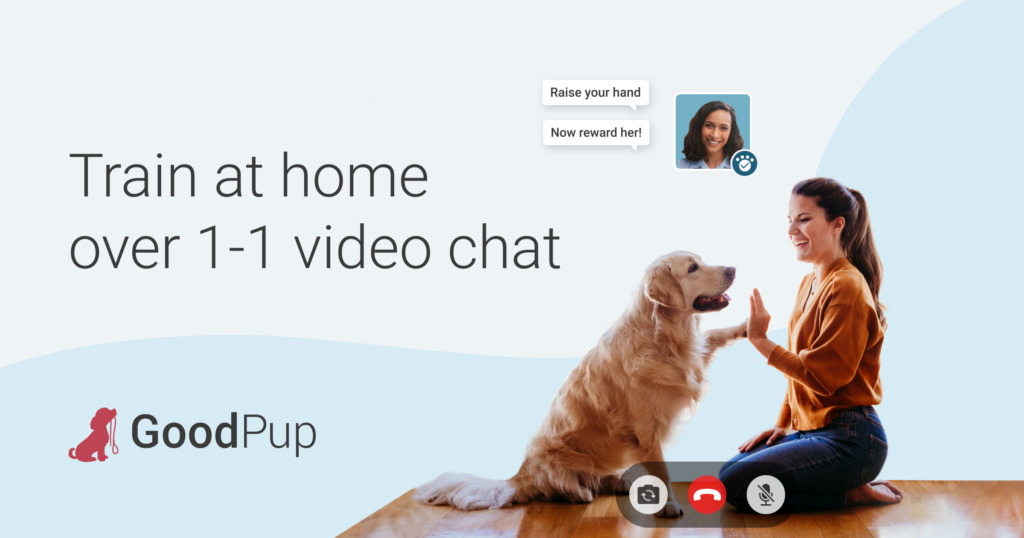
The Trap/Neuter/Release (“TNR”) program for community cats was an important key to reducing the kill rate for cats. Just a few short years ago the kill rate was 9% for cats; they were almost certain to be put down once they arrived at the facility. Kittens that came in without a mom almost always faced the “death sentence” according to Shelley. There was no foster program until recently and the community cat population was out of control. In 2017, Robert Benoit, who worked for Joel Robideaux, presented an Ordinance that authorized the TNR program. Today, the Shelter is seeing the results of this successful program and there are much fewer rescued kittens being brought to the facility. If you see a cat with a clipped ear, this is a universal sign that it has been neutered.
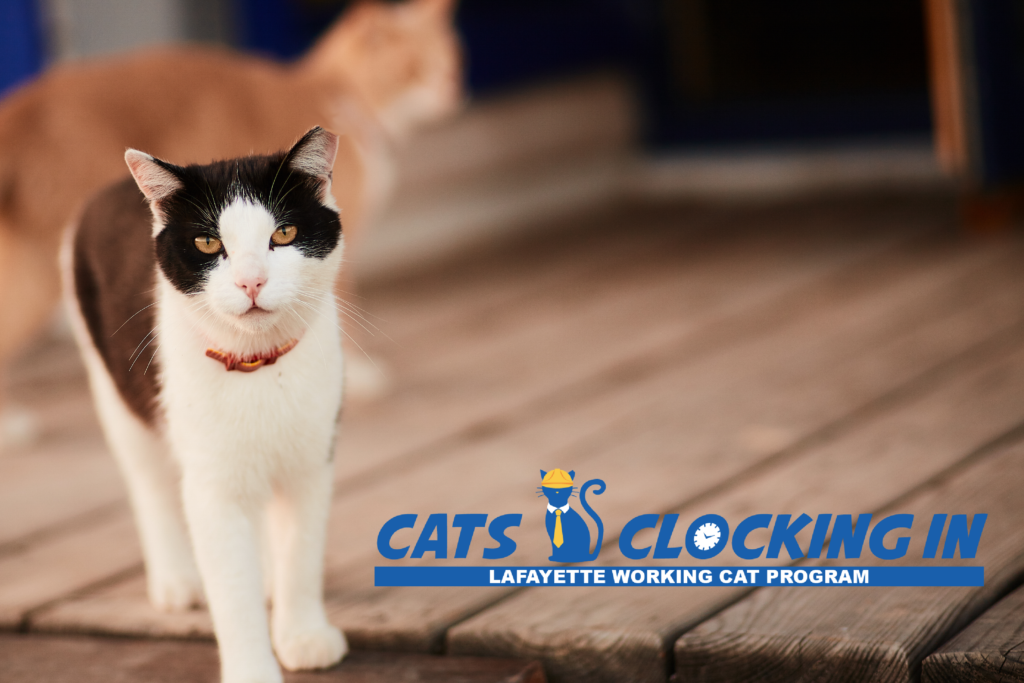
Another fun initiative to place cats into useful settings is the “Cats Clocking In” program. An idea of former Mayor-President Robideaux, cats can be ‘hired’ and they ‘work’ to reduce pesky rodents in shops and barns. These cats may not fit into your home, but they definitely earn their keep by providing pest control services! Sometimes just the smell of a cat will keep rodents away. Working cats will arrive neutered, vaccinated, and microchipped. They will need about two to three weeks in a safe, enclosed space to get acclimated to their new environment and adjust to the new sounds and smells. Employers must provide food, water, and future medical care. The Shelter staff recommends that you adopt cats in pairs as they will stick together beautifully.
A ‘No-Kill’ facility means that at least 90% of the animals are saved from euthanasia. Some animals must be put down; if the animal is suffering after being severely injured, extremely old, or has a condition that can’t be addressed, they will be a candidate for euthanasia. If a $15,000 surgery is required in an attempt to save an animal, Shelley says that animal would be put down. “We try so hard to avoid euthanasia. But I’d rather take care of 20 animals for that amount of money. We have to watch our funds.” Also, some animals with severe behavioral issues that are too aggressive to be suitable for adoption will be put down. Shelley says, “I wouldn’t put an aggressive animal in someone’s home.
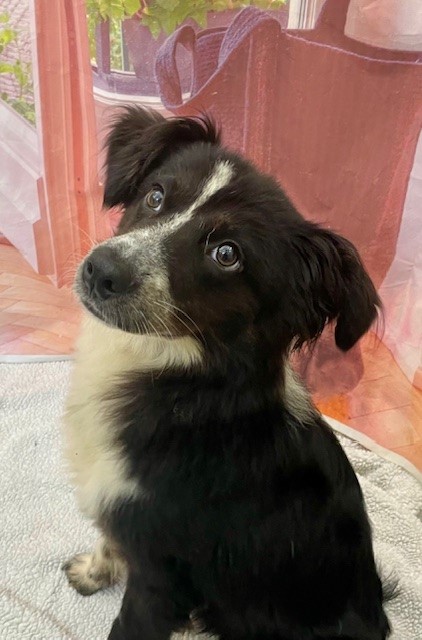
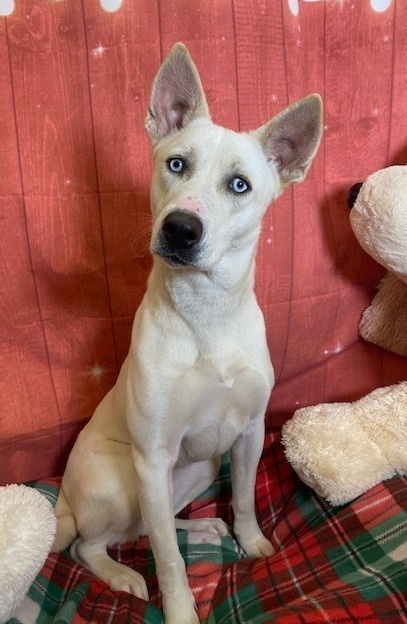
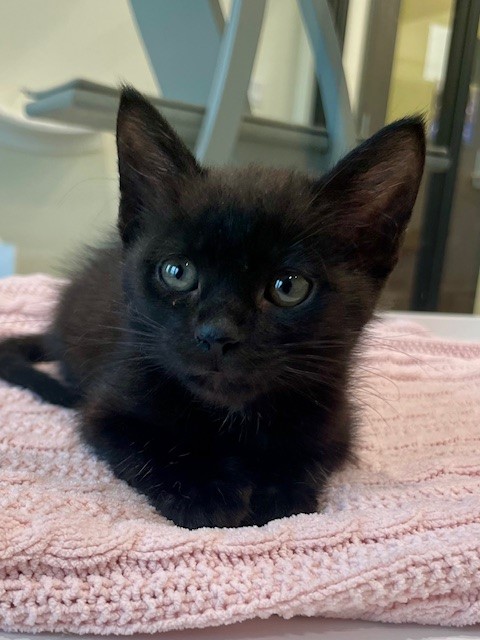
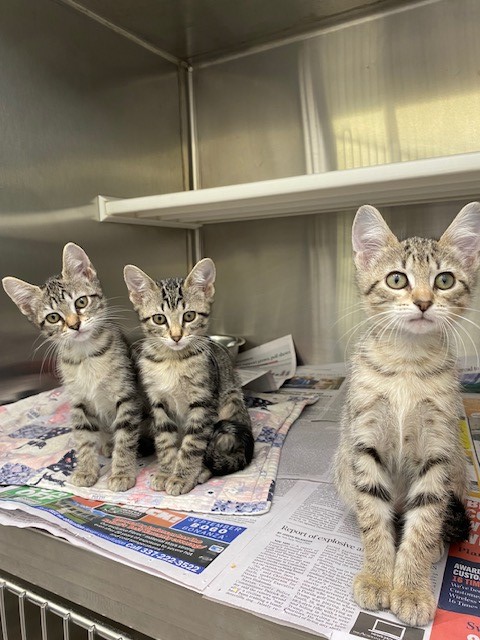
When animals are picked up off the streets, there are varying stray/hold times. If an animal is untagged or not chipped, it will be held for 3 days before being released for adoption to the general public; it will be held for 5 days if they do have identification, in order to give the owner a chance to retrieve their pet. Many pets are reclaimed within one to three days. Once the stray/hold period ends, the pet becomes the property of LCG and it can be adopted or transferred.
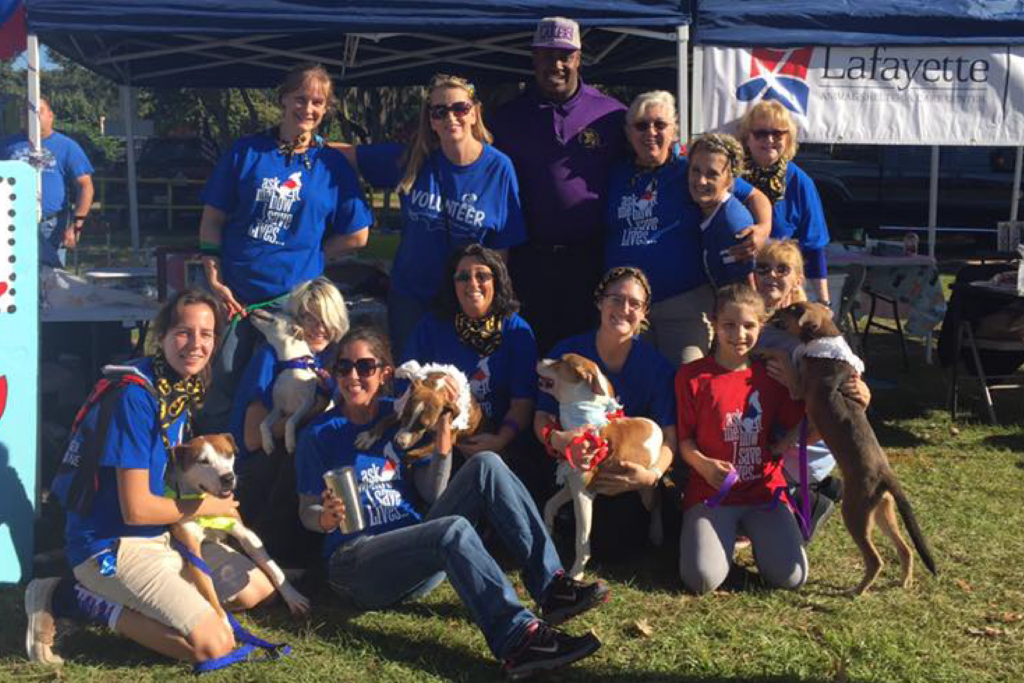
Volunteers enable the Lafayette Animal Shelter to provide the animals the love and attention they deserve. The Shelter is always in need of animal lovers who can volunteer their time bathing, grooming, walking, and socializing the animals. They need the help of volunteers at off-site events, photography, laundry, cleaning, and even some administrative duties. Volunteers must be 18 years and youth that are 12-15 years of age must have a parent volunteer with them. Volunteers 16-18 years of age can volunteer on their own with a parental consent. Contact LASCC@lafayettela.gov for more information.
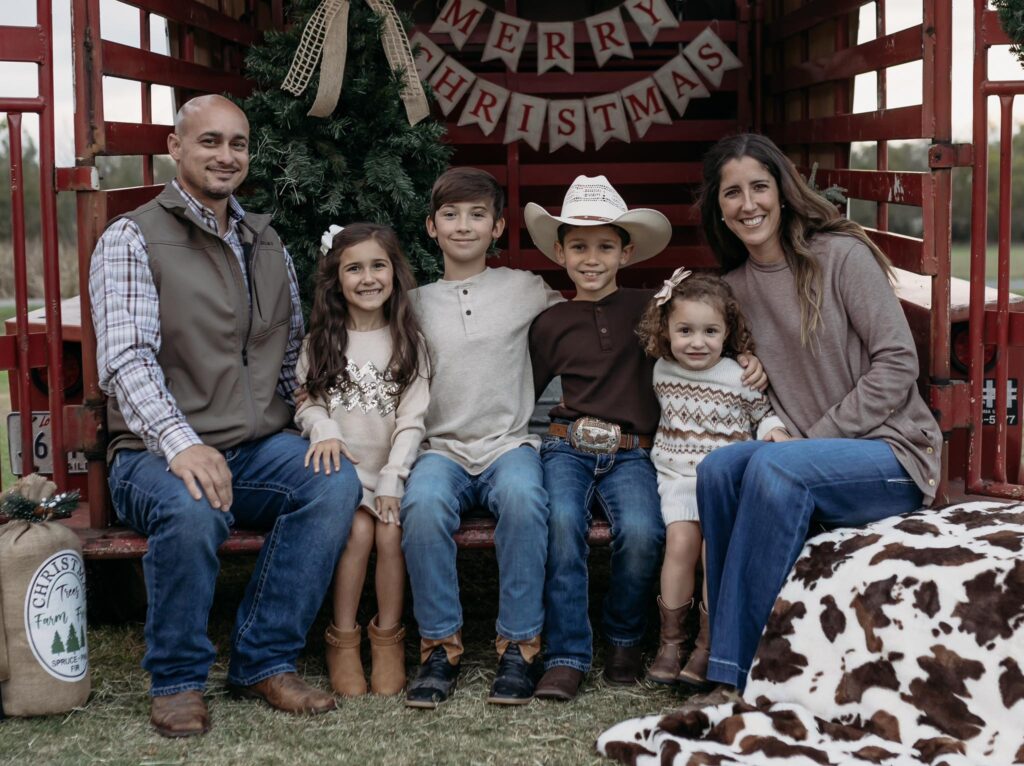
Shelley studied Animal Sciences at UL – Lafayette and had plans to become a veterinarian. But family responsibilities, namely a pregnancy, changed her plans. She worked at the New Iberia Research Center and as a vet tech before joining Lafayette Animal Shelter and Care Facility. She is married with four children and has four dogs, a cat and chickens. “Its a circus but I love it!”
The Lafayette Animal Shelter is open Monday – Friday from 8 AM to 5 PM, and Saturday from 12 to 2PM for adoptions only. Located at 410 N. Dugas Road off of University Avenue, it is a beautiful and clean facility filled with dedicated staff, many of whom have worked there for years.
We thank Shelley Delahoussaye, along with her staff, for their dedicated service to our community of humans and animals! Visit https://www.lafayettela.gov/lascc/default for more information.






 Visit Podcast Website
Visit Podcast Website RSS Podcast Feed
RSS Podcast Feed Subscribe
Subscribe
 Add to MyCast
Add to MyCast